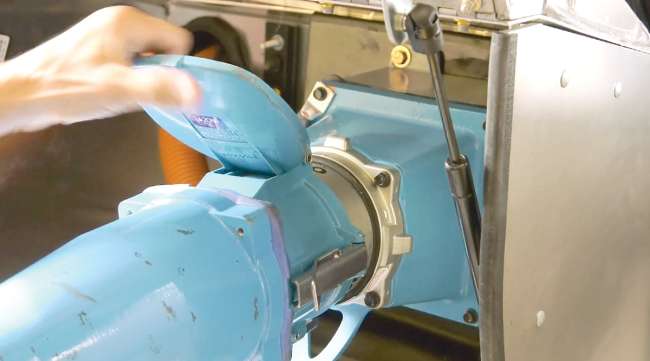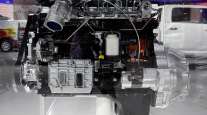Senior Reporter
AdTra Aims to Unite Zero-Emissions Fuel, Funding and Infrastructure

[Stay on top of transportation news: Get TTNews in your inbox.]
With little promotional fanfare so far, privately held AdTra intends to offer fleets its platform of fueling technology and fuel. Also, fleets would have access to capital to buy low carbon, zero-emissions trucks and operate them at the equivalent cost of a diesel medium- or heavy-duty truck.
AdTra envisions itself as an alternative to public subsidies, which it considers only a short-lived option for fleets.
“There are different rules that will come to apply to the medium- and heavy-duty truck fleets that are going to require them to look at low carbon, zero-emissions alternatives for freight movement,” McKinley Addy, vice president of AdTra, told Transport Topics.
Because of the high cost of alternative powertrains compared with diesel engines, it is going to be challenging for a number of fleets to be able to realize the levels of deployment they would otherwise want, he said. “Therefore, there is a need for a commercial solution that reduces those costs, and our platforms are a pathway to get to those reductions.”

A hydrogen fuel pump. (Getty Images)
To qualify, a fleet must agree to a seven-year contract. Over that period, fleets would systematically add “clean” power units when replacing diesel trucks. At the same time, a fleet must agree to give all environmental credits it accrues to AdTra in exchange for financial assistance at the time of equipment purchase and for its fueling platform.
“We, ideally, would like to work with truck fleets that are 500 trucks or more. On the other hand, we are willing to look at truck fleets as low as 50 if the fleets have a site they own capable of locating a fueling facility on, whether it be a hydrogen fueling facility, a natural gas fueling station or placing some electric chargers and our onsite generation system onsite,” Addy said.
AdTra would sell electricity to the fleets about 25% to 50% lower than the prevailing utility cost, he said, by eliminating certain charges and fees utilities typically impose. Natural gas and hydrogen fuel could also be provided at less expense through its networks, he said.
“Capital is available to do any number of good things. Particularly if the capital markets can see the return on investment and validate the business model,” said Addy, a former program manager at the California Energy Commission.
AdTra, based in Nevada and California, has tried this approach in pilot form in different ways, Addy said. “We are rolling out the platforms as the market conditions warrant,” he added.
Meanwhile, the North American Council for Freight Efficiency recently forecast commercial battery-electric vehicles and fuel cell trucks will be capable of lower total cost of ownership, compared with baseline diesel trucks, in the 2030 time frame.

Roeth
NACFE Executive Director Mike Roeth told TT some are wondering who is going to emerge as the leader in the deployment of zero-emissions vehicles.
“There are a lot of moving parts. We are in a transformation here. You just can’t say it’s coming; somebody has to act. And they are going to act when the money makes sense to act, and having a financial leader who is making those decisions very clearly on total cost of ownership and payback is real helpful,” Roeth said.
At the same time, public subsidies, he added, might last longer than first thought. “That’s the place where the consumer, public sector and sustainability investment will likely show up, particularly in trucking. But everything has to have a pathway to economic viability.”
Host Seth Clevenger went to CES 2020 in Las Vegas and met with Rich Mohr of Ryder Fleet Management Solutions and Stephan Olsen of the Paccar Innovation Center to discuss how high-tech the industry has become. Listen to a snippet above, and to hear the full episode, go to RoadSigns.TTNews.com.
In related news, the utility Dominion Energy, which operates in California and 17 other states, announced it has expanded its greenhouse gas emissions-reduction goals and is committing to net zero emissions by 2050. The goal covers carbon dioxide and methane emissions, the dominant greenhouse gases, from its electricity generation and gas infrastructure operations.
Discussions about zero-emissions electric trucks often mention the source of the electricity as a factor in determining the overall emissions profile of the vehicle.
Reducing emissions as fast as possible and achieving net-zero emissions requires immediate and direct action, the Richmond, Va.-based utility said in a release. That is why the company is moving to extend licenses for its zero-carbon nuclear generation, and investing in wind and solar power, lower-carbon natural gas, and carbon-beneficial renewal natural gas.
Want more news? Listen to today's daily briefing:





